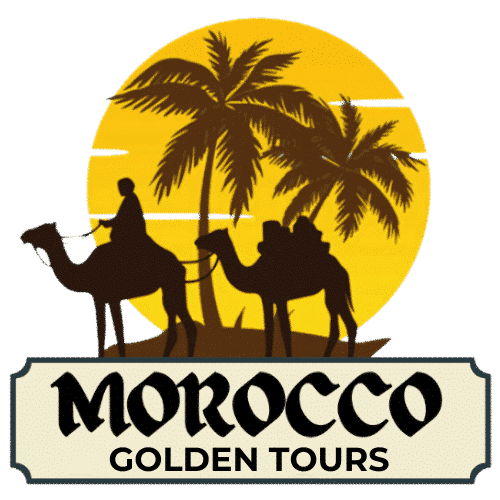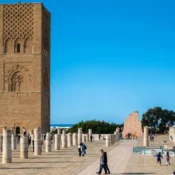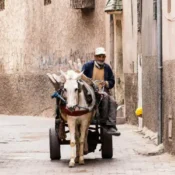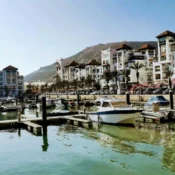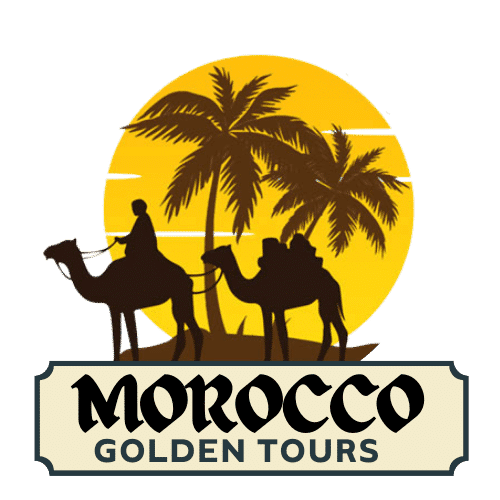How to Say “Thank You” in Moroccan Arabic: A Helpful Guide for Travelers
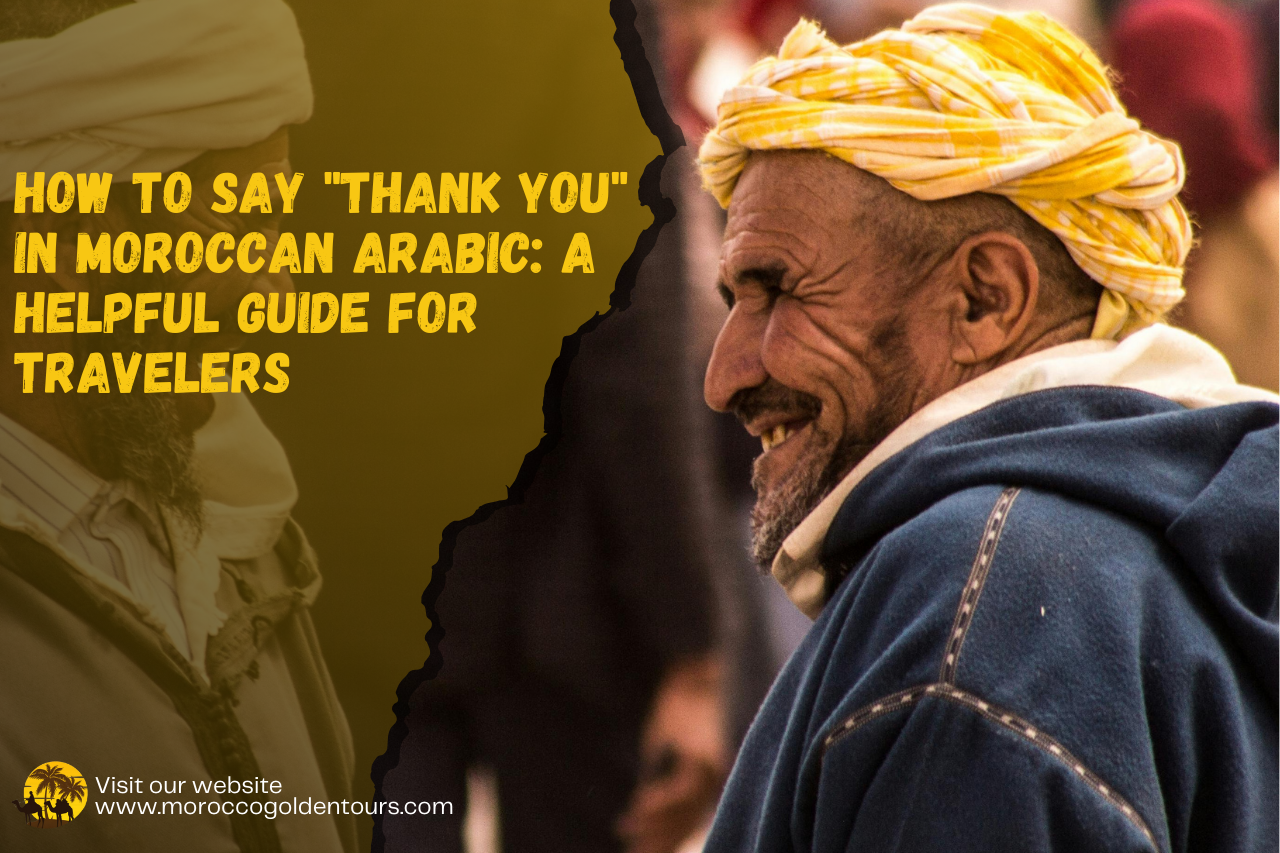
If you’ve ever traveled to Morocco or thought about visiting, you probably know how important it is to connect with the locals. One of the simplest yet most powerful ways to build a bond with someone is by expressing gratitude. But how do you say “thank you” in Moroccan Arabic? If you’re planning a trip or just curious about the language, this guide will help you understand how to say thank you in Moroccan Arabic in various situations. By the end, you’ll be ready to express your appreciation in a way that makes a positive impression!
Table of Contents
Understanding Moroccan Arabic (Darija)
Before we dive into the different ways of saying “thank you” in Moroccan Arabic, it’s important to understand a little bit about the language. Moroccan Arabic, also known as Darija, is the everyday spoken language of Morocco. Unlike Modern Standard Arabic, which is used in formal settings, Darija is what you’ll hear in markets, restaurants, and homes. It’s a lively and easy-to-learn language that blends Arabic with French, Berber, and Spanish influences.
The good news is that learning a few simple phrases, especially ones like “thank you,” can make your time in Morocco so much easier and more enjoyable!
Common Ways to Say “Thank You” in Moroccan Arabic
The most common way to say “thank you” in Moroccan Arabic is “Shukran” (شكرا). This word is easy to pronounce and is used in almost every situation when you want to show appreciation.
- Shukran: This is the simplest way to say “thank you.” Whether you’re thanking someone for a small favor or expressing general gratitude, “Shukran” will always work.
- Shukran Bzaf (شكرا بزاف): If you want to express even more gratitude, you can add “bzaf,” which means “a lot.” So, “Shukran Bzaf” means “Thank you very much.”
- Lah Y3tik As-Saha (الله يعطيك الصحة): This phrase literally means “May God give you health,” and it’s commonly used when someone offers you food or helps you with something. It’s a nice, culturally meaningful way to say thank you.
- Mabruk (مبروك): While not always used for “thank you” in the direct sense, “Mabruk” is used to express congratulations. It’s a way of saying “well done” or “good job.”
- Barak Allahu Fik (بارك الله فيك): This is another formal way of saying thank you, which translates to “God bless you.” You would typically say this when someone does something kind for you, especially in a religious or formal context.
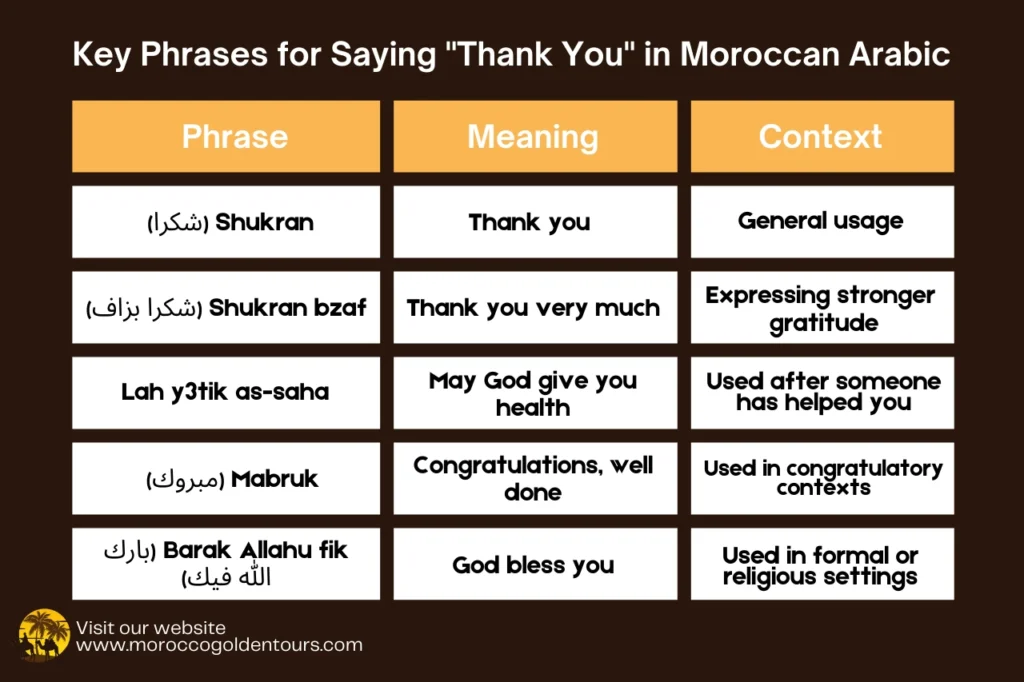
When to Use Thank You in Moroccan Arabic
You’ll find that knowing when to say thank you in Moroccan Arabic is just as important as knowing how to say it. The good news is, that gratitude is always appreciated in Morocco. Here are some key situations where you might want to use these phrases:
- When Someone Helps You: If someone goes out of their way to assist you, like offering directions or helping with your luggage, a simple “Shukran” will show your appreciation.
- When You’re Given Something: Whether it’s a gift, food, or even a cup of tea, saying “thank you” is expected. For example, when a host offers you food, you can say “Lah y3tik as-saha” to express your gratitude.
- In Shops and Markets: Vendors in Moroccan markets are always willing to help, and showing appreciation for their service will go a long way. After making a purchase, try saying “Shukran Bzaf” to show that you value their business.
- When Receiving Compliments: If someone compliments you or gives you a nice gesture, responding with “Shukran” is always polite.
- During a Religious Ceremony: If you’re invited to a Moroccan home or attending a religious event, you can use “Barak Allahu Fik” as a way to thank someone for their kindness.
How to Pronounce Thank You in Moroccan Arabic
For those new to the language, it’s essential to get the pronunciation right to sound more natural. Here’s a simple guide to help you:
- Shukran: Pronounced as “shook-rah-n.” The “sh” sound is soft, and the “r” is lightly rolled, typical of Moroccan Arabic.
- Shukran Bzaf: “Shook-rah-n bzaaf.” Again, the “r” is soft, and “bzaf” sounds like “bzaf,” with a strong emphasis on the “z.”
- Lah Y3tik As-Saha: “Lah yatik as-sa-ha.” Focus on pronouncing the “h” sound in “as-saha,” which is a soft breathy sound.
- Mabruk: “Mah-brook.” A simple and direct pronunciation.
- Barak Allahu Fik: “Barak Allah fikh.” Keep the “r” sound light and soft, typical of Moroccan Arabic.
Non-Verbal Ways to Show Gratitude in Morocco
Sometimes, words aren’t enough to express how thankful you are, and that’s where non-verbal gestures come into play. In Morocco, showing gratitude through body language is just as important. Here are some ways to express your thanks without saying a word:
- A Smile: A genuine smile can go a long way in showing appreciation.
- A Nod of the Head: When you’re given something or show kindness, a respectful nod of the head can communicate your gratitude.
- Handshake or Light Hug: In many social settings, a handshake is the most common greeting, and it can also serve as a thank you.
- Offering a Gift: If someone has done something special for you, offering a small gift is a thoughtful way of expressing gratitude.
Why Saying Thank You in Moroccan Arabic Matters
Using the right phrases to express gratitude can create positive connections with the people around you. Moroccans value politeness, and showing that you appreciate their help or hospitality will help you stand out as a respectful visitor or guest. Whether you’re in the bustling markets of Marrakech or enjoying a cup of mint tea in the quiet corners of the desert, taking the time to learn a few local words of appreciation can make your experience even more rewarding.
By saying “thank you in Moroccan Arabic” with sincerity, you’ll not only express gratitude, but you’ll also build a meaningful connection with locals, who will appreciate the effort you put into speaking their language.
Conclusion: Expressing Gratitude in Moroccan Arabic
Saying thank you in Moroccan Arabic is not just about using words it’s about showing respect and kindness. With just a few phrases like “Shukran” or “Lah y3tik as-saha,” you can convey your appreciation and make a lasting impression. Remember, gratitude is a universal language, and when you use it in the local dialect, you’ll find that your interactions are even more enriching.
Next time you’re in Morocco or speaking to a Moroccan, don’t forget to say “thank you.” Your effort will be appreciated, and you’ll likely make new friends along the way.
For more travel tips and insights, feel free to visit Morocco Golden Tours and start your journey today!
